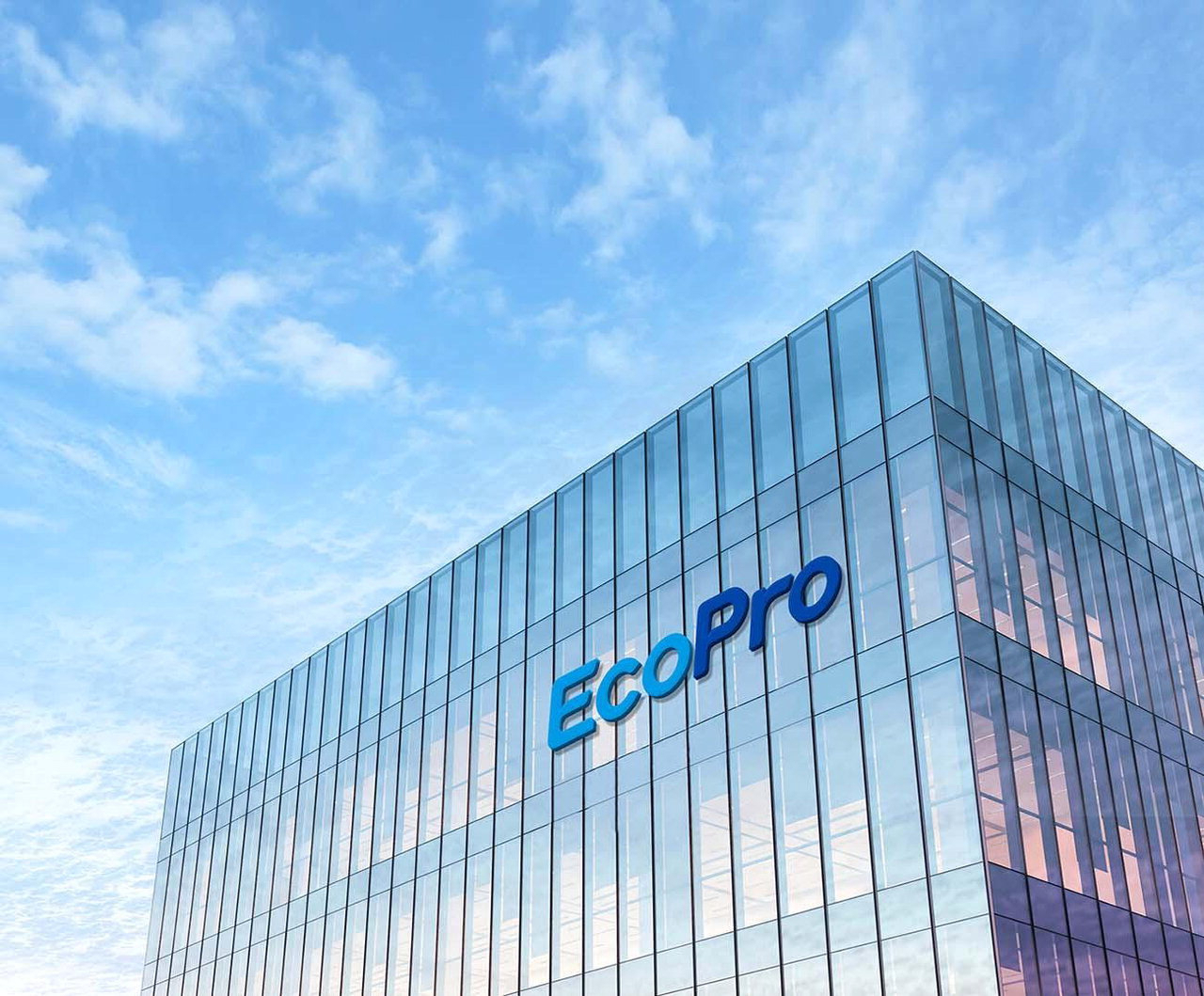 |
Headquarters of EcoPro located in Cheongju, North Chungcheong Province (EcoPro) |
The fluctuating stock prices of firms in the secondary battery sector sent the local stock market on a rollercoaster ride over the last week.
Battery materials stocks achieved gains on Friday afternoon after suffering losses in the morning, raising alarms for retail investors who belatedly joined in on a buying spree for EcoPro and Posco shares.
Shares of EcoPro closed at 1.10 million won ($863.85) on Friday. It spiked to a record high of 1.53 million won during trading hours on Wednesday, but fell to a week low of 935,000 won on Friday, making the differentials of the high and low during the week stand at 604,000 won.
Shares of EcoPro BM, an affiliate of EcoPro that produces battery materials, showed a similar movement before closing at 407,500 won on Friday. It fell from the week high of 584,000 won on Wednesday to the week low of 360,000 won on Friday, making the fluctuation range stand at 224,000 won.
With the turbulent stock prices, the added market cap of EcoPro and its affiliates listed on the Kosdaq went up and down as well. The total market value of the EcoPro family, tumbled down to 64 trillion won from the new high of 81 trillion won, before eventually recovering to 70 trillion won on Friday.
The shares of steel giant Posco Group experienced a similar bumpy ride last week, led by its holdings company, Posco Holdings, and its battery materials company, Posco Future M -- the two companies running high on the recent battery frenzy.
Posco Holdings shares reached a new high of 764,000 won on Wednesday and dropped to a week low of 560,000 won on the next day. It eventually closed at 619,000 won on Friday.
Posco Future M closed at 510,000 won on Friday, after dropping to the week low of 464,000 won earlier in the day. Similar to other shares in the secondary battery sector, it spiked to the record high of 560,000 won on Wednesday.
Posco Group’s market cap hit a new high of 122 trillion won before dropping to 105 trillion won on Thursday. It recovered to 112 trillion won on Friday.
The abrupt dive in battery materials stocks seen last week is assumed to have stemmed from a massive selling spree by retail investors after their binge-buying in recent weeks, rather than specific external factors.
According to data from the Korea Exchange, retail investors net-sold EcoPro BM shares worth 739.2 billion won and EcoPro shares worth 629.5 billion won in the June 24-28 period. They were the two most net-sold shares on the Kosdaq by individual investors.
It is presumed that the share prices of EcoPro surpassing 1.5 million won -- a significant bar for retail investors as they perceive the figure to be a high mark -- could have sparked the selling spree for profit-taking, eventually driving down the stock prices.
Fear of reverse trading could have set fire to the fall in stock prices. Reverse trading refers to how brokerage firms execute the forced selling of stocks which have been purchased through in-house loans if the appraised value falls below a certain level.
Yet, the plunge was responded to by another buying spree from retail investors seeking to hop on the rally of battery material shares, perceiving the dip in prices to be a chance to purchase related shares at prices lower than the peak from Wednesday.
Local brokerage houses are reluctant to issue new reports on the share prices of battery material firms as some analysts have experienced difficulties with complaints from retail investors after releasing "sell" reports for EcoPro shares. Also, the share prices of related firms have been moving up and down based on investor sentiments, rather than fundamentals.
Meanwhile, market watchers are assessing the retail investor frenzy for secondary battery material firms is leading to higher uncertainties for the local stock market.
“With the investor frenzy, the stock price index has gone up, but the concerns remain,” analyst Kang Dae-seok from Yuanta Securities Korea said. “The Kospi went up 2.8 percent in July, but the volatility index of the Kospi climbed 11.8 percent in the same period.”
“While there have always been major shares that led the market and investor frenzy for certain sectors, the share flow in July was extreme,” analyst Shin Seung-jin from Samsung Securities said.
“This is a time in which investor sentiments and program trading supply and demand matter more than the fundamentals. The volatility for stocks that have gained prices due to expectations for growth will continue to increase," Shin said.







